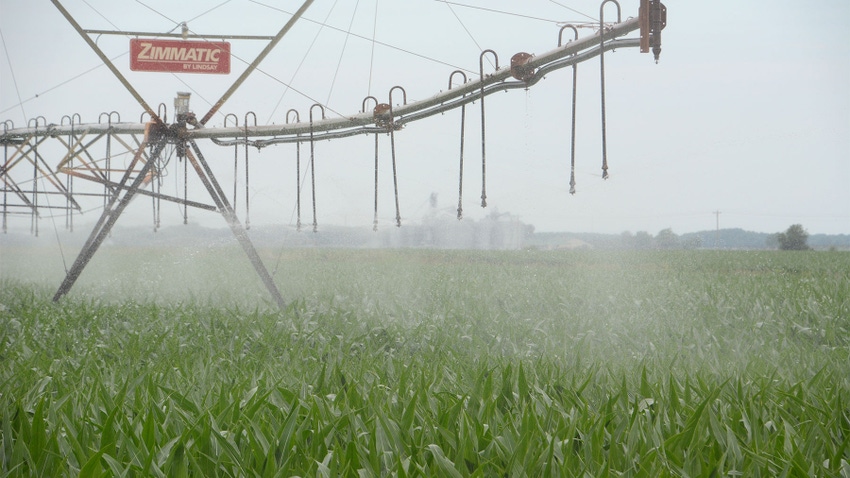
Randy Kron knows that maintaining water quality is a big issue in Indiana. What he didn’t foresee was that the next big issue appears to be water quantity and water rights. Until now, that was a critical topic in western states, not here.
“We’ve typically not considered having enough water as a big issue in Indiana,” says Kron, an Evansville farmer and president of Indiana Farm Bureau. “We have more wet soils than sandy soils, and a good portion of the state has strong underground aquifers. But if industry drastically ups the demand for water, water quantity must be addressed.”
Big industrial water user
What’s bringing the issue to a head right now? It is the realization that there won’t be enough water locally to meet the needs of the industrial district the Indiana Economic Development Corp. is developing in Boone County. It’s referred to as LEAP, which stands for Limitless Exploration, Advanced Pace. Until recently, most of the uproar created by the project stemmed from loss of farmland. Original plans called for converting as much as 10,000 acres of prime farmland into an industrial complex. One major facility for Eli Lilly is already under construction.
Now, it appears water will also be an issue. According to Inside Indiana Business, in an article posted Nov. 20, IEDC is exploring a plan that would pump as much as 100 million gallons of water per day from aquifers in Tippecanoe County connected to the Wabash River, and then transport water by pipeline to the industrial complex in Lebanon.
On Nov. 20, the Tippecanoe County Council approved a nine-month moratorium on high-capacity water withdrawals and transfers. While some question whether local government has the right to issue such a moratorium, and IEDC contends it would not withdraw water within the nine-month period anyway, the action sent the first shot across the bow in what could be a long battle.
Unintended consequences
“This isn’t the only reason that water quantity will be an issue in the future,” Kron says. “One of the main reasons big truck stops and other industry hasn’t popped up along the I-69 corridor from Indianapolis south to Evansville is because there isn’t adequate water supplies for such development in that part of the state.”
As for Indiana Farm Bureau, Kron says delegates recognized this upcoming issue in policy discussions. “It’s part of a more complex issue on farmland loss and property rights,” he explains. “We will form a task force to collect information and study these issues over the next year. Water quantity, or lack of it, will be part of the discussion.”
Meanwhile, Kron finds himself in a unique position. “Farm Bureau as an organization and myself personally are strong believers in individual property rights, and not so much in government rules, regulation and intervention,” he says. “But the fact is that Indiana doesn’t have any effective rules and regulations related to water quantity because it wasn’t an issue before.
“Now, it appears some rules and regulation will be necessary. What happens here will affect more than just development. It could affect water supplies for irrigators and many more things. We will be watching discussions closely as they unfold.”
Read more about:
Land ManagementAbout the Author(s)
You May Also Like




